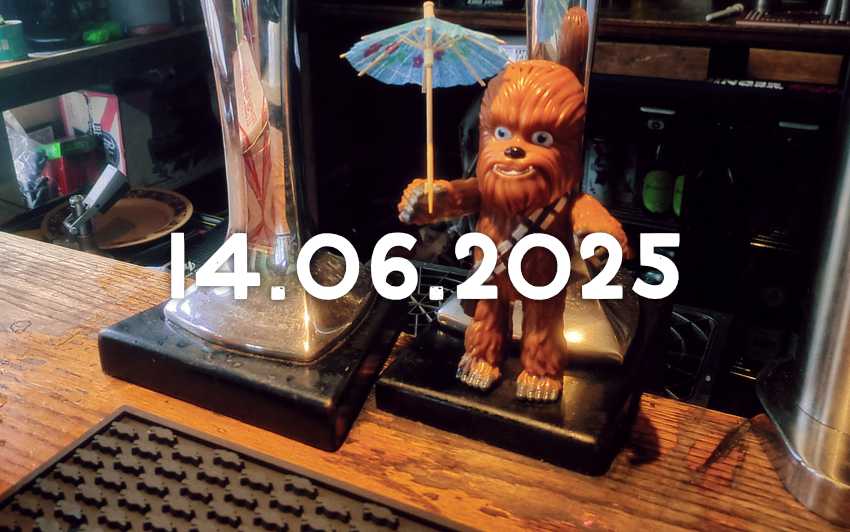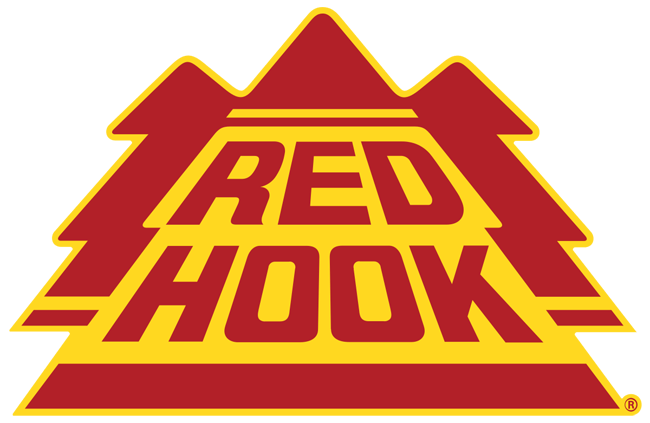
Every Saturday we round up the best writing about beer from the past week. This time, we’ve got the death of the Irish pub, pub etiquette, and more on gentrification.
First, some sad news: brewing scientist Sir Geoff Palmer has died at the age of 85. He was not only a notable figure in the world of beer but also beyond, being described by the BBC as ‘Scotland’s first black professor’. There’s an obituary at the website for Heriot-Watt University:
Born in St Elizabeth, Jamaica on 9 April 1940, he moved to London as a 14-year-old in 1955, where his mother had emigrated some years earlier, as part of the Windrush Generation… From 1968 to 1977, he worked at the Brewing Research Foundation in Surrey where he used the fundamental research from his PhD studies to develop a pioneering barley abrasion process and pioneered the use of the scanning electron microscope to study cereal grains. This process was subsequently adopted by some of the UK’s biggest breweries… Sir Geoff returned to Heriot-Watt University in 1977 as a lecturer where, among his many achievements, he secured industry funding to establish the International Centre for Brewing and Distilling (ICBD), which continues to this day as a unique teaching and research facility.

We got to this one a little late: for RTÉ Kate Demolder has written about the state of the pub trade in Ireland with the emotive headline ‘Irish publicans on the bar trade: “The show is basically over”’. It’s a substantial piece with input from a range of voices, from publicans to academics:
“I have four kids aged between 22 and 30 and they’re all gym bunnies,” John Byrne, owner of The Lark Inn on Meath Street, says… “You see the younger generation in the pub maybe once a week for a match or a party, but you also might go a couple of months without seeing them. They don’t see the pub as a way of socialising. And for those trying to save for a mortgage, forget about it.” … A 2024 benchmarking survey by the [Vintners’ Federation of Ireland] found that 36% of pub turnover is currently consumed by labour costs alone, and that figure will increase to over 40% with the introduction of the Living Wage… The same survey found that 37% of publicans are considering retirement within the next two years, and 84% report that no family member wishes to inherit the pub.

Sticking with mainstream news outlets, you probably saw this piece by Will Noble of Londonist about British pub etiquette. It went viral yesterday mostly, we think, because someone suggested on BlueSky that it was “sidesplittingly hilarious… as if an alien came to earth, saw some 1950s films and then ran it through ChatGPT”. We stuck up for the piece on the grounds that it’s hosted by CNN and the intended audience is American tourists who might be coming to the UK for the first time. Within those bounds – and even beyond them – it’s a good summary of the various types of pub you might encounter, and of some of the unspoken rules that govern how we behave in them:
If you’re ordering drinks, and drinks alone, go up to the bar. Though handheld menus do exist, they’re not used all that much; a board behind the bar will advise you which beers are pouring, and you can also squint at the labels on the hand pumps (more of which later). If it’s a beer you’re unfamiliar with, a good bar person will offer you a free taster… Though Britain was built on queuing, the pub is one setting where standing in line is not how it’s done. Getting served — especially at a busy bar — involves gradually easing yourself towards the front. Once you’re within touching distance of the bar, you must win the attention of whoever’s on the other side of it, being neither too meek (a gentle smile and nod works well) or too bold (wave a credit card in the air, and you’ll be waiting all night).

Last week we linked to a piece about breweries and gentrification by Jen Blair. Her newsletter prompted further thoughts on the subject from Kevin Kain at Casket Beer:
As industry in the US declined in the last half-century, many industrial areas have been “targeted” for redevelopment. That’s not necessarily a bad thing. Something does need to happen to these properties. In addition to being eyesores, at best, they often have unchecked contamination seeping into the surrounding communities… That doesn’t mean the solution is luxury residential towers, yoga studios, and high-end boutiques, but these areas do need reinvestment… While it’s true that breweries have been part of some redevelopment initiatives that may also include coffee shops and natural wine bars, as Jen points out, unlike the other uses, breweries have always occupied industrial spaces. It’s not fair to lump them together with the other businesses.

For Pellicle Will Hawkes has profiled German Kraft, a brewery in Elephant & Castle, London, that’s long fascinated us – not so much for its beer (which is fine) but because of its business model. We think we detect a certain deadpan tone in this article, a bit of a raised eyebrow, at the ruthlessly commercial nature of the operation, and the underlying privilege that fuels it, but perhaps we’re projecting:
January was a busy month for Felix Bollen. The co-owner of German Kraft Brewery spent new year’s eve in Austria before heading to Berlin, where he lives, a week later. Two weeks on, he took a bus to London, the birthplace of German Kraft (his car —“a piece of shit,” he says, with a smile—broke down en route) before flying back to the German capital for a few days. He ended the month back in Vienna… Such is Felix’s life now. German Kraft, which he founded alongside pals Michele Tieghi, Anton Borkmann, and Andrea Ferrario at Elephant and Castle food hall Mercato Metropolitano in 2017, is expanding rapidly across Europe. Venues in London and Vienna (at Gleis//Garten, the city’s first food hall) have recently been joined by more in Austria, while a Berlin bar called Dufte, based on the ground floor of Kant-Garage, a converted 1930s multi-storey car park on fancy Kantstrasse, will open this summer.
As Louise Krennmair pointed out on BlueSky, by way of additional context, it’s also worth reading about Felix’s father, Florian, who also works in the business.

At Beervana Jeff Alworth has the news that Redhook, one of the original American craft breweries, no longer has a “corporeal body”. In other words, it has become a ghost brewery:
Yesterday parent-company Tilray announced they would be closing the last brewery owned by Redhook, one of the earliest breweries founded in the craft beer era… Paul Shipman and Gordon Bowker founded Redhook in 1981 in Ballard, a Seattle neighborhood that would eventually become one of the most densely-breweried in the world (the first beer came out in ‘82). It followed a trajectory only possible in a market with no small breweries. Redhook grew like a weed in its first decade, fueling lofty goals. They quit the transmission shop to move to the suburbs and into an architecturally-interesting new building purpose-built for a growing brewery with national ambitions. They were soon brewing the kind of volumes new breweries only dream of today… Then Redhook made craft brewing history in 1994 when it sold a chunk of ownership to Anheuser-Busch. No microbrewery had ever “sold out” before, and it created quite a stir in the still-tiny craft brewing world. That decision would ultimately lead to the news yesterday, albeit in a slow, wandering fashion.
A personal footnote: we used to see Redhook beers in Michael Jackson books 20 years ago, looking incredibly interesting and appetising, but hardly ever got to taste them. And even then only at great expense, when they were probably past their best. Still, it’s another example of those earlier waves of ‘craft’ slipping away.
Finally, from Bluesky, this photo by Ed Wray isn’t technically a great photo, but it is a great photo nonetheless…
The Geldart
— Ed Wray (@thebeerfather.bsky.social) June 13, 2025 at 11:24 PM
For more good reading check out Alan McLeod’s from Thursday. Stan Hieronymus is feeling jaded and might or might not post round ups from now on, with no particular schedule. Read his excellent blog anyway.





